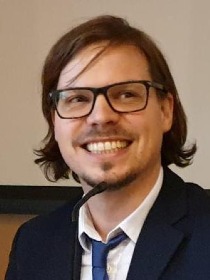Michel Dückers: Meer aandacht voor problemen getroffenen bij crisissituaties is écht nodig
Dreigingen en rampen moeten anders worden aangepakt, of ze nu acuut of sluimerend zijn. Zo moet er meer aandacht komen voor de gevolgen voor getroffenen nadat de dreiging is bestreden. Dat stelt bijzonder hoogleraar Michel Dückers in zijn oratie.
Klimaatverandering, vervuiling, bevolkingsgroei, polarisatie, internationale spanning, oorlogsdreiging, vluchtelingenstromen, economische stagnatie, onrust en onzekerheid. Het zijn slechts enkele voorbeelden van (dreigende) problemen die elkaar versterken en samen tot grote crises kunnen leiden. Hoe kunnen zulke crises worden aangepakt op zo’n manier dat de gevolgen voor de gedupeerden zo klein mogelijk zijn? Deze vraag staat centraal in het onderzoek van crisisexpert Michel Dückers.

Sluimerende rampen
De bijzonder hoogleraar stelt in zijn oratie van 18 november dat er in de klassieke crisisaanpak een te sterke focus is op acute dreigingen. Dat zijn situaties waar mensenlevens direct op het spel staan en er sprake is van vernietiging en directe ontwrichting. Dückers pleit voor meer aandacht voor sluimerende rampen. Dat zijn situaties waarbij er wel duidelijk wat aan de hand is, maar waarbij overheden en instanties niet voldoende in beweging komen, zoals bij de gaswinningsproblematiek en de toeslagenaffaire.
Aandacht getroffenen
In zijn oratie noemt Dückers een zestal elementen die bepalen of crisisbeheersing van zowel acute als sluimerende rampen goed uitpakt. Volgens hem gaat het niet alleen om de ernst en de duur van dreiging, oftewel de “primaire blootstelling”, waarop de crisisbeheersing van oudsher is gespitst, maar bijvoorbeeld ook om het adequaat afwikkelen van “schade en verlies”. Daarbij is het volgens hem cruciaal dat er zo min mogelijk institutioneel en procedureel gedoe – of “procedurele last” – is en dat gedupeerden serieus worden genomen en betrokken in processen: “erkenning”. Ook is het belangrijk dat er “hoop en perspectief” wordt geboden: wordt de toekomst beter?
Context
Als laatste factor die van invloed is op hoe succesvol crisisbeheersing is, noemt Duckers de “context” waarbinnen de ramp plaatsvindt: rampen vinden niet plaats in een vacuüm, zo stelt hij, maar zijn onderhevig aan persoonlijke omstandigheden van mensen, de tijdsfase waarin de ramp zich bevindt én de bredere tijd en plaats waar het allemaal speelt. In onze huidige “crisissamenleving” is dat volgens Dückers een context waarin de verwachtingen hooggespannen zijn en waarin mogelijkheden onder druk staan.
Bijzondere leerstoel
De komende jaren gaat Michel Dückers verder met zijn onderzoek naar crises. Zijn leerstoel, Crises, Veiligheid en Gezondheid, is ingesteld door ARQ Nationaal Psychotrauma Centrum, Nederlands Instituut Publieke Veiligheid (NIPV), Nivel en Rijksinstituut voor Volksgezondheid en Milieu (RIVM). Hij houdt zich momenteel vooral bezig met onderzoek en advisering gericht op de gezondheidsdimensie van rampen en crises, zoals de gaswinningsproblematiek, de COVID-19 pandemie en klimaatverandering.
● Meer informatie: Michel Duckers - m.l.a.duckers@rug.nl
Meer nieuws
-
03 februari 2026
‘Daar zit een goeie kop op’
-
20 januari 2026
Alcohol, appen en e-bikes
-
13 januari 2026
Lonneke Lenferink nieuw lid van De Jonge Akademie


